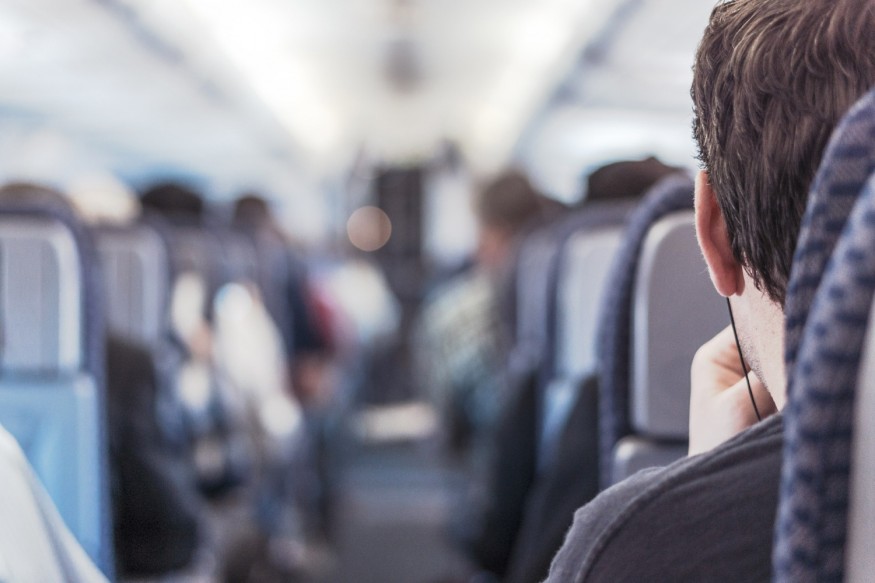
Many of us aren't planning on getting on a flight anytime soon. As restrictions settle in over the United States, and cities are forced to enforce regulations such as "Shelter in Place", restaurants and retails stores across the nation are shutting down their doors to customers in order to prevent the spread of the novel coronavirus, COVID-19. Flying out to Los Angeles just isn't the same when the museums and shopping malls aren't open. The number of people flying right now can be reflected by the plummeting plane ticket prices.
However, while most of us won't be contacting a vacation planner in the near future (although we might already be thinking of setting up a vacation for fall to treat ourselves after the isolation, and may be thinking of snagging some great travel deals) are holed up in our homes, quarantining and forced to find another show on Netflix to binge for another 12 hours, some of us don't have a choice, and will have to hop on a plane soon for reasons that are considered essential.
First, the good news is that airports are on high alert to prevent the spread of coronavirus, and these buildings are conducting regular airport decontamination services each hour to protect airport workers and commercial fliers alike. However, if you are planning to take a flight in the next couple weeks, you can follow the below precautions to stay safe and protect yourself from COVID-19.
These Are the Items You Should Be Carrying In Your Carry-on
Perhaps your heading home from University, as dorms and classes close to students across the United States. Or maybe you're a nurse or doctor flying into help in an area where they are in dire need of medical professionals. Regardless of what you are travelling for, it's important to keep you, and those around you, safe.
When arriving at the airport, it can be good to put on a double pair of gloves. Why a double pair? By wearing two pairs of gloves, it allows you to easily pull the top pair of gloves off, and throw those in the trash, making it less likely that you will accidentally touch any possible pathogens on the surface of the second layer of gloves. You can use these gloves as you check in your luggage, or put your items into the bins for TSA checking, or when picking up your luggage after you get off your flight.
It's also great to carry hand sanitizer and wipes, if you can get your hands on some. We know that hand sanitizer is currently selling like liquid gold, but if you can get your hands on some hand sanitizer, use it at the airport whenever you must touch an object, door, or surface, before touching your face, mouth, or nose. Although the main spread of transmission for coronavirus is through droplets that are produced from a cough or a sneeze being near someone who is infected, it can also be transmitted from the surface of an object that has the pathogens of the virus. Make sure to sanitize your phone, in addition to any other objects you touch often.
Now, if you do have some face masks in your home, it can also be a good idea to wear a face mask to the airport. Although many authorities have said that wearing masks does not help to prevent the spread of coronavirus - this is not completely true. Because of the lack of masks available to medical personnel, we are warning regular citizens not to buy up masks. Which you shouldn't, because hospitals are in dire need of these equipment. However, if you do happen to have masks in your home, you should wear one to the airport.
In countries such as China and South Korea, almost every single person who is out and about is wearing a face mask. If every person is wearing a face mask, including those who could be infected and those who aren't, it greatly reduces the risk that coronavirus will be spread from one person to another.
Practice Social Distancing
Where international airports could see upwards of 20,000 travelers departing onto exiting flights daily, numbers report that the number of fliers heading out of airports has dropped to 25% of what airports usually see. If you're traveling, this is a good thing. Why?
Social distancing? For the first time in your life, you won't be experiencing backed up TSA check in lines, nor will it be difficult to find a seat while waiting for your flight. With the reduced number of travelers, there is a lot more breathing space, so make use of it, and also respect the space of other workers and travelers.
The reduced number of travelers also means that there are going to be a lot more empty seats on your flight. Make use of the space by keeping empty rows and seats between you and other fliers. Don't be afraid to ask another passenger to switch to another seat, or for you to switch to another seat, if you would like the space. This is a matter of health, not personal space, and others will need to respect your wishes.
This article is copyrighted by Travelers Today, the travel news leader



